3 Underused, Highly Effective Ways to Use Competitive Intelligence
3 Underused, Highly Effective, Ways to Use Competitive Intelligence. See how you can learn from your competitor's mistakes, use real-time data to...
Smart moves based on competitive intel are all around us. Have a peek at 8 examples of competitive intelligence, with tips to do the same for your business.
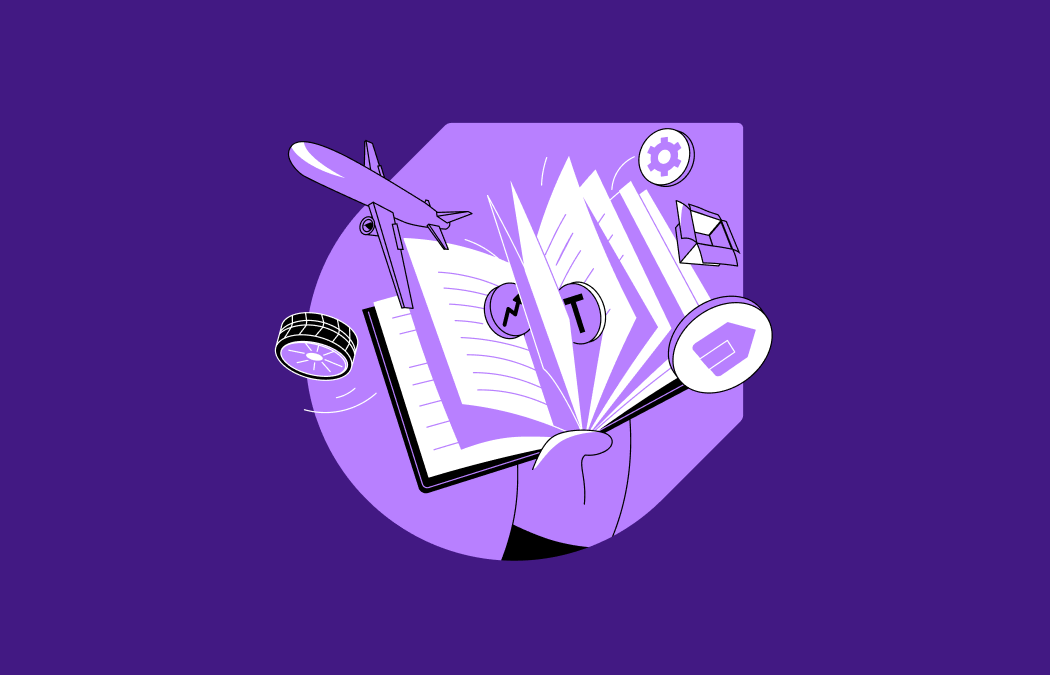
The prices we pay, the marketing we consume, the products we can buy, and the sports teams we follow - just a few examples of where the results of competitive intelligence impact us every day.
You probably know what you want from competitive intelligence - higher win rates, better launches, stronger road maps. What might not be as clear is how this actually happens.
More than an exercise in curiosity, the following inspiration from real-life examples of smart businesses utilizing competitive intelligence can help you start to imagine and plan your own competitive intelligence program.
First, let's get on the same page as to what competitive intelligence involves.
Competitive intelligence is the process of observing, collecting, and analyzing relevant, publicly-available information about the external business environment and then distributing the resulting insights across your entire organization.
You might focus on competing businesses, customers, and other stakeholders, but also on products and markets as well as on economic, technological or legal factors.
The main purpose of a competitive intelligence (CI) program is to ensure awareness and understanding of the external forces in the market as soon as they emerge, allowing you to quickly respond to risks and opportunities in your sales calls, messaging, marketing - even your pricing and product roadmap.
Keep in mind though, that your competitive intelligence is only as useful as your distribution plan is complete. Many companies find the format of Battlecards an effective way to put important CI insights at the sales team's fingertips. Others prefer instant email or Slack/Teams alerts.
The impact of competitive intelligence is all around us, but it's easy to miss. Which have you noticed?
The airline industry is a perfect(ly painful) example of how to use competitive intelligence wisely. Every day, airline companies change flight ticket prices based on external information. For instance, if their competitor increases pricing for a certain route, they will quickly do the same. Then again, price drops are also “contagious.”

Customer information is also used in pricing adjustments at an individual level. By identifying and tracking specific users, flight companies can flag when a potential customer is repeatedly searching for the same flight details. Knowing that this person really wants to fly on those dates, over time the airlines can safely increase prices. I’ve even heard that prices vary by the brand of phone you use(?!).
You can do the same. Particularly in a time of inflation or recession, you need to know in real time what your competitors are doing about pricing. Is it up? Is it down? Are they offering a promotion? This method is also known as shifted-market pricing. Making reasonable adjustments based on demand or competitor pricing is not to be confused with price gouging or price fixing, of course!
You can get started monitoring competitor pricing with this handy pricing analysis template. Keep it up to date and make sure your sales team is aware of changes so they’re ready to handle any pricing questions a prospect may raise.
Wendy's is notorious for their spicy tweets, often made at the expense of their competitors. This approach is not for everyone, but whether you like it or not, it’s hard not to laugh. And 222K Retweets are excellent for their brand recall.
They likely have several full-time social media managers who monitor competitor accounts so they don't miss an opportunity to hit back with humor, but what if you're not similarly equipped?
It's still a good idea to keep an eye on what your competitors are sharing on social media to spot trends and see what kinds of posts and messaging are resonating with their audience. Whether you engage or just watch, social posts are often the first indicators in a change in pricing, a new feature, or new leadership.
Startups provide fantastic competitive intelligence examples in the area of market disruption. Traditional companies with their higher budgets, extensive resources, superior technology data may but layers of bureaucracy, may struggle to keep up with a fast-moving startup when speed matters.
By processing, reacting, and adapting rapidly to competitive intelligence insights, they can understand client pain points better and deliver superior solutions, faster.
Think of Airbnb and how they were able to leverage technology, socio-demographic change, and consumer insights to disrupt the hotel industry. When you see an unmet need (by watching customer reviews carefully) this is your chance to capture a part of the market even if you're up against big brands.
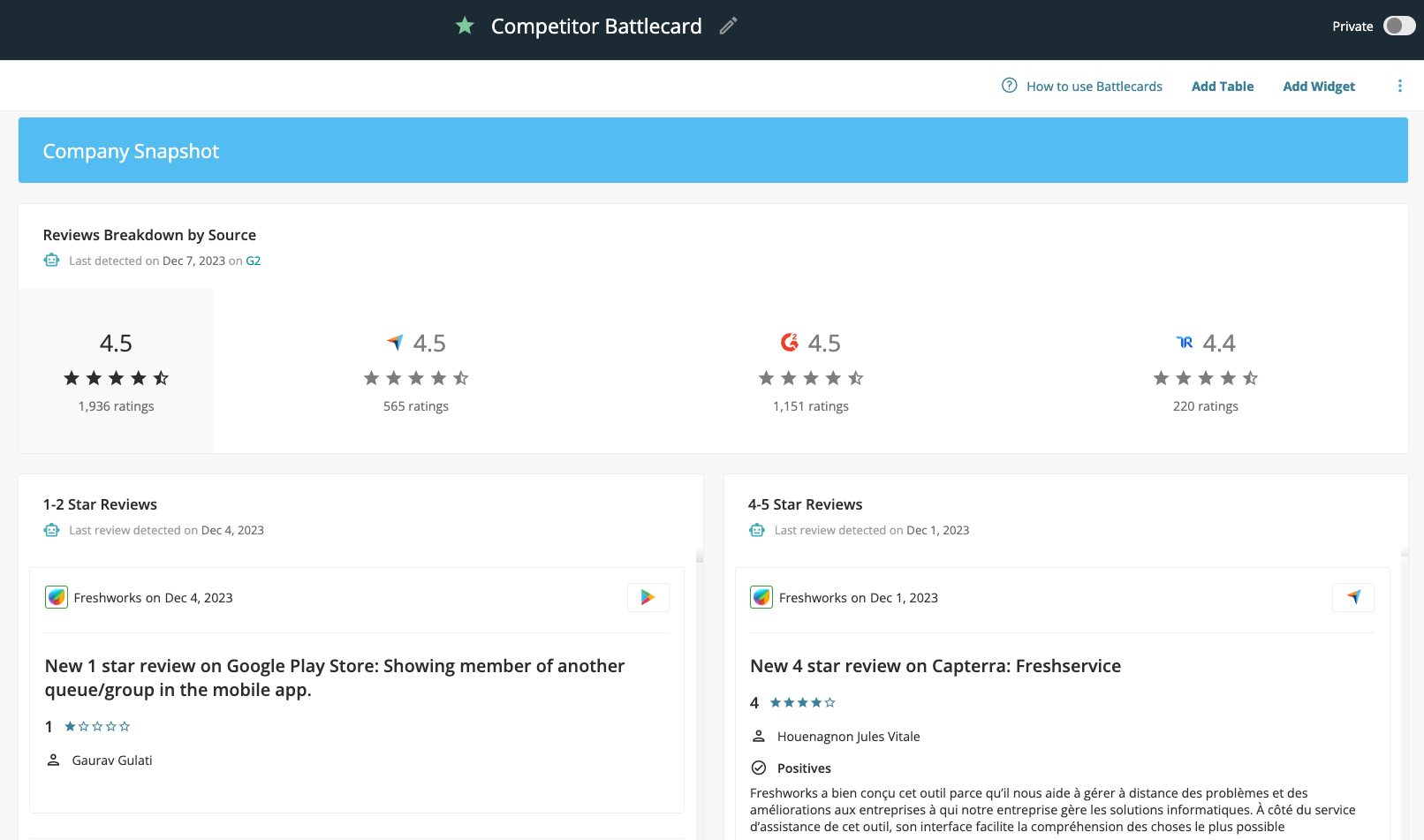
Sure, we’ve all heard of draft picks, or the uproar over Tom Brady’s 2020 move to Tampa Bay (so. much. uproar), but the level of competitive intelligence needed to build the best team in the league is next level. And worthy of imitation! 
For example, talent scouts visit games to find promising talent, and to benchmark the strengths and weaknesses of another team’s lineup. If, for example, a rival team has a strong defensive line, they may look for strong offensive players to counter that strength.
You can do the same, watching to see competitor hiring and layoff trends. Are they ramping up to support a new product offering? Is top talent back in the labor pool?
What do YOUR competitor's hiring trends reveal?
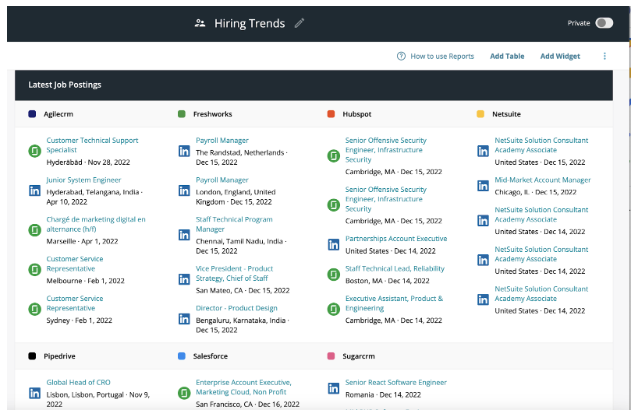
Whether you think Amazon spells the end of the free market and small business, or you’re the (sheepish?) recipient of near-daily deliveries, you’d have to agree that Amazon has it figured out. They know how to get the most money from the largest number or people.
One of the ways they do this is with competitive intelligence. Monitoring competitor pricing allows them to adjust prices in real time to match or beat it, making it a go-to spot for the best prices on millions of products.
While you may not track millions of SKUs, keeping up with competitor pricing is key. The last thing you want is for a salesperson to be ambushed with a big competitor price cut on a phone call. Awareness allows you to either respond in kind or prepare to handle a potential price-related objection with confidence.
Companies like Toyota and Ford closely monitor each other's vehicle features and performance metrics. When one company introduces a new safety feature or technological advancement, competitors often quickly follow suit. 
For example, when Tesla popularized electric vehicles with advanced autonomous driving features, traditional automakers accelerated their own electric vehicle programs.
Then there are airbags. Invented in the early 1970s, they were mandatory by the late 1990s. Long before that, though, they’d become table stakes for most car buyers.
Remember the chicken sandwich wars of 2019 when Popeye’s launched their new fried chicken sandwich? Chick-fil-a took to Twitter to remind people that theirs was the original (and always the winner in my book), and the feathers were flying. Now, at least 20 more competitors have lined up for their bit of the (chicken pot?) pie. 
And it’s no wonder. Popeye’s social jousting with rival Chick-fil-a (and possibly a great sandwich), lead to a 38% jump in Popeyes’ same store sales in Q4 2019
Yup, Amazon makes the list twice, this time as a defendant. Noting the success of Amazon’s Prime service, still a steal at $139/year, Walmart and Target upgraded online shopping and delivery with Walmart+ at $98/year and Target’s partnership with Shipt. Depending on where you live, the latter will get you one-day or same-day shipping, which may be harder to get with Amazon. 
That’s right, you no longer need to fight the crowds of Target or Walmart 😱 to get what you need fast. Of course, when you shop online, you do miss out on dozens of must-have items in the Bullseye Shop at Target. Pro or con? You decide. ;)
If you’re running (or marketing) a brick-and-mortar business, don’t ignore your online competition, which might mean looking at indirect competitors. What services are they offering that you could adapt to your business? Is it time to get online in one way or another?
Oh, and this little gem popped up as I was writing this post. Who knows how far it will go, but none of us thought Amazon would let brick-and-mortar stores have the last word!
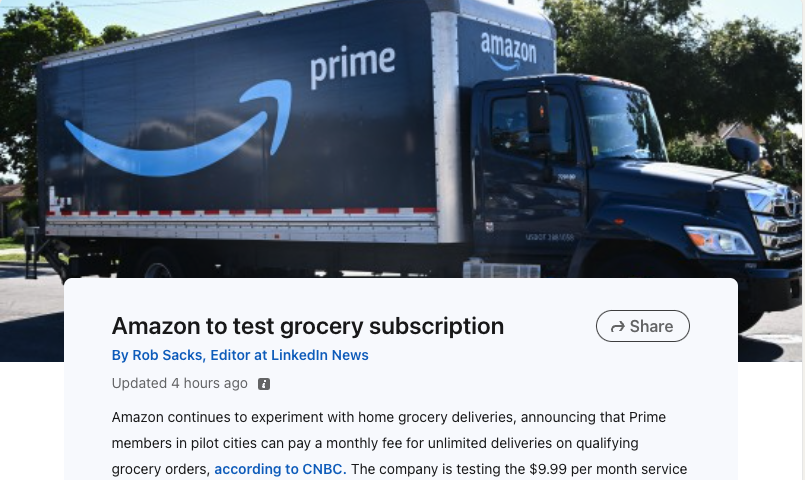
Building a new store or signing a lease is a big investment, which is why Starbucks and others use competitive intelligence to understand where their competitors are thriving and why. This allows them to choose new locations wisely and optimize their presence in existing markets.

Even if your business is 100% online, you can use competitive intelligence when you're looking to expand either the area you serve or the products and services you offer. For example, if you're wondering which country to focus on for expansion in marketing, you can look for the biggest increase in market share and traffic for your competitors in Semrush Market Explorer. 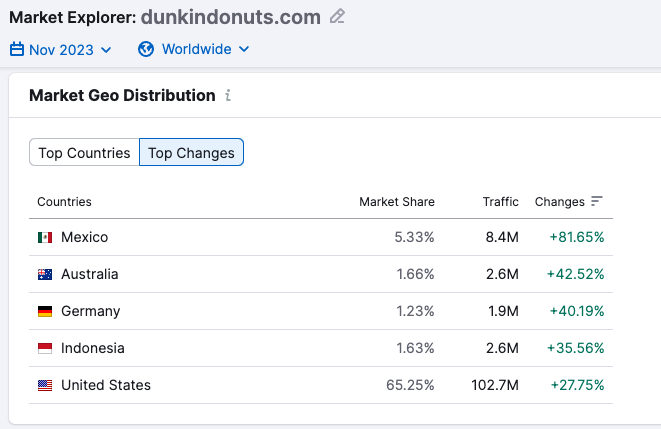
If you're wondering what content or products you should release, you can look at your competitors' top pages in Traffic Analytics. That turkey sausage flatbread page is doing well...
If you scroll down a bit you'll see that their Veteran's Day promotion page did well, too. Maybe something add to your marketing plan for next year.
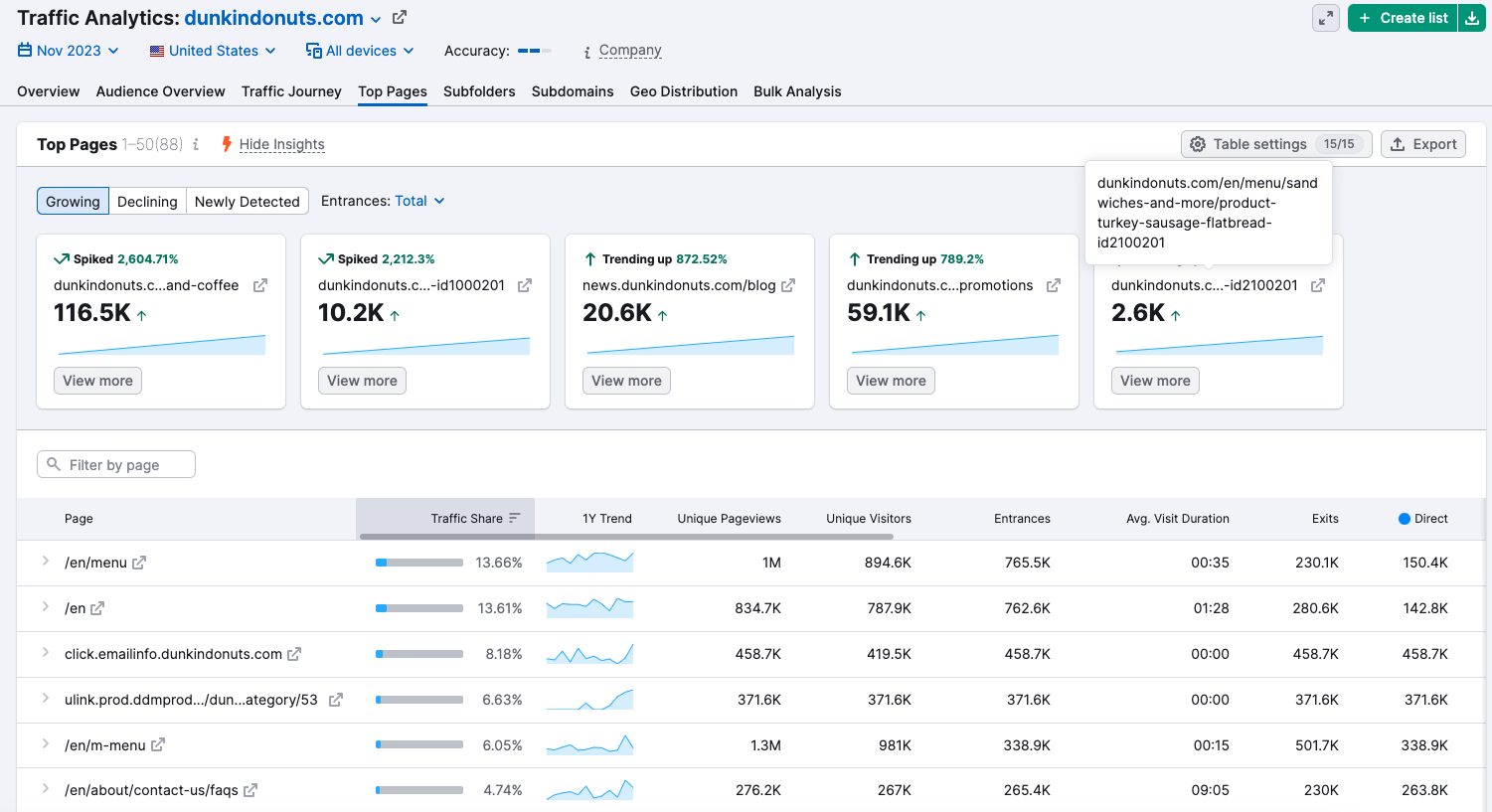
Wise use of competitive intelligence is key to success across virtually every industry. Great examples can be found almost anywhere, from fast food, to the sports world, to tech startups, and more. In each of these cases, the common denominator is that organizations who are able to outperform their peers do so by mastering the collection, interpretation, and distribution of competitive intelligence.
While you can certainly enjoy the benefits of CI by collecting and distributing insights manually, more and more companies are relying on automation to save time, ensure nothing is missed, and surface only the most important information. If you'd like to see competitive intelligence automation could change your business, we'd be happy to show you. Get a demo here.
3 Underused, Highly Effective, Ways to Use Competitive Intelligence. See how you can learn from your competitor's mistakes, use real-time data to...
Discover how AI transforms competitive intelligence, driving cost savings, efficiency, and resilience in challenging economic times.
Are you planning or evaluating your competitive intelligence program? Would you like to see what others are doing? We’ve compiled usage statistics...
Be the first to know about new B2B SaaS Marketing insights to build or refine your marketing function with the tools and knowledge of today’s industry.